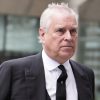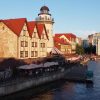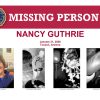
A senior cabinet minister has admitted that local lockdowns “haven’t yet seen the impact we would like to have seen” as tough new restrictions are expected to be introduced across large parts of northern England.
Robert Jenrick, the communities secretary, said measures imposed on millions of people more than two months ago would have helped to flatten the curve but they had not been as effective as hoped.
Timeline What the UK government said on Covid testing
Show
Hide
1 September 2020
Boris Johnson
“Not only are we getting the pandemic under control, with deaths down and hospital admissions way, way down, but we will continue to tackle it, with local lockdowns and with our superlative test-and-trace system.”
9 September 2020
Boris Johnson
“NHS Test and Trace is doing a heroic job, and today most people get an in-person test result within 24 hours, and the median journey is under 10 miles if someone has to take a journey to get one … [To Keir Starmer] We make the tough calls – all he does is sit on the sidelines and carp.”
9 September 2020
Boris Johnson
[On the ‘moonshot’ proposal for mass, near-instant testing:] “We are hopeful this approach will be widespread by the spring and, if everything comes together, it may be possible even for challenging sectors like theatres to have life much closer to normal before Christmas.”
16 September 2020
Boris Johnson
“We don’t have enough testing capacity now because, in an ideal world, I would like to test absolutely everybody that wants a test immediately … Yes, there’s a long way to go, and we will work night and day to ensure that we get there.”
17 September 2020
Matt Hancock
“Of course there is a challenge in testing … We have sent tests to all schools to make sure that they have tests available. But of course I also recognise the challenges in getting hold of tests … Tests are available, even though it is a challenge to get hold of them.”
Was this helpful?
Thank you for your feedback.
“We know and we understand that in some of the places where we’ve imposed local restrictions, we haven’t yet seen the impact that we would like to have seen, and we understand that’s extremely frustrating to people in those areas,” he told Sky News on Thursday.
Millions of people across the north of England and Nottinghamshire face new restrictions within days, including the closure of pubs, bars and restaurants, amid rising alarm in Whitehall about a sharp rise in hospital admissions.
Helen Stokes-Lampard, the chair of the Academy of Medical Royal Colleges, said there had been a worrying rise in hospital patients, particularly among those who required ventilation and were the most seriously ill.
She said the data was “not looking good” and that the number of Covid patients in UK hospitals had risen sharply to 3,100, up from a few hundred over the past month. About 500 of those patients were in intensive care, she said.
“That’s really worrying. A month ago we had only 60 people in the whole of the UK in ITU [intensive care unit] beds. So we are seeing a very worrying trend at the moment.”
Ministers are to announce a three-tier traffic light system of lockdown measures in an attempt to prevent the exponential rise in cases from overwhelming hospitals.
Analysis by the Guardian found that infections had doubled in the majority of towns and cities under long-term lockdowns.
David Mellen, the leader of Nottingham city council, said he expected restrictions on the hospitality industry to be announced next week, warning that the delay would lead people to “have one last blowout” this weekend.
Play Video
2:21
Boris Johnson ‘misspeaks’ over north-east England Covid-19 restrictions – video
“It seems like we’re victims of a government change of approach and therefore even though we’ve got very high numbers that we’ve known about since the beginning of the week, we’ve got to wait until next week for government to bring in what we expect will be new restrictions in Nottingham,” he said.
“There is a chance this weekend that people might think this is the last chance before Christmas, let’s go out and party – and we can’t have that.”
Jenrick conceded that the restrictions had not eliminated the virus but said the infection rate “would almost certainly be even higher than it is today and even tighter restrictions might now be being considered” if they had not been imposed.
The communities secretary said ministers wanted to take a more consistent approach and that it was considering what the right action would be to take in the north-west, north-east and parts of the Midlands where cases have soared in recent weeks.
He told BBC Radio 4’s Today programme: “It’s right that we take a considered view of this and not rush to judgment, and that’s exactly what we’re doing at the moment. We’re taking a proportionate and regional approach.
“We’re in regular contact with the mayors and local council leaders … we want to bring local leaders with us and come to decisions in the most amicable way possible, but it is right that the ultimate decision is taken by the government, guided by the chief medical officer.”























































Свежие комментарии